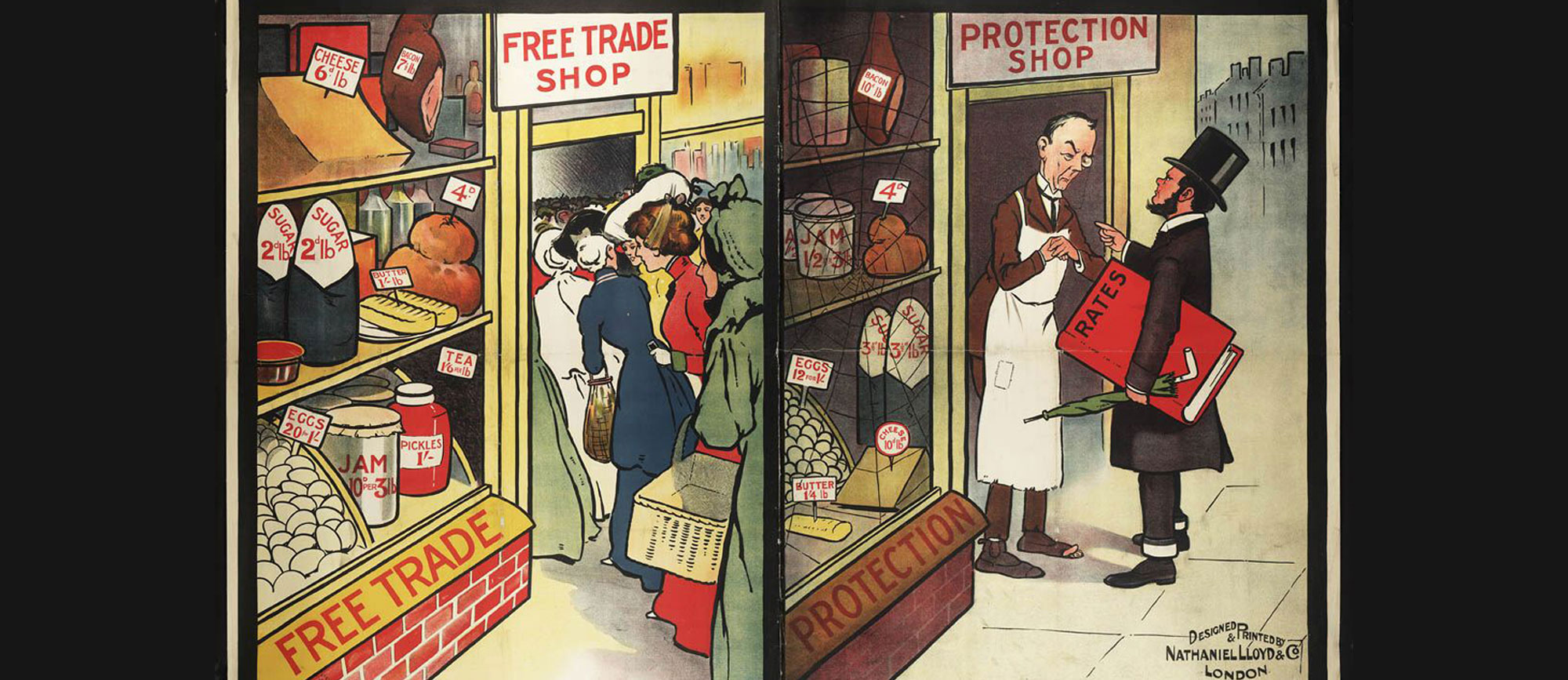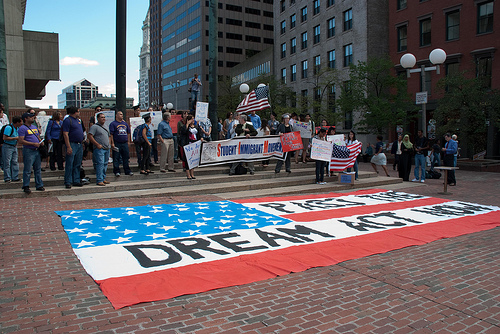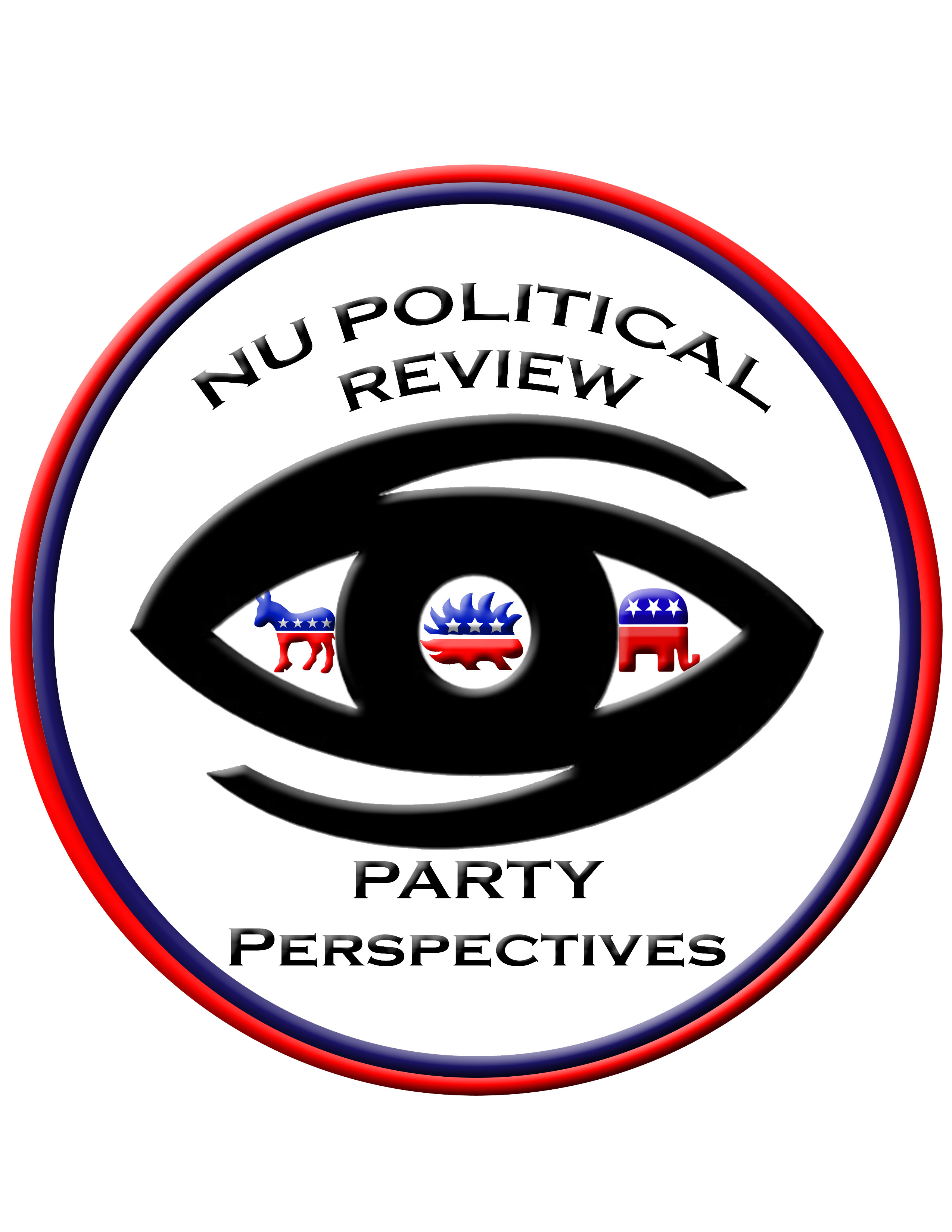The human predisposition is to fear what we do not know, which helps us to identify potential threats and protect ourselves from them. It is precisely this psychological impulse that both leads a child not to eat a strange new food and has led to President Donald Trump’s protectionist immigration policies, particularly the travel ban and deportation executive orders.
The right of a country to self-defense against enemies — which is the underpinning of protectionist policy — cannot be doubted. However, when protectionist policies are not grounded in the evidence at hand, they are nothing more than overt discrimination.
To understand how and why President Trump’s protectionist policies have become racist in result, despite their stated intention, it is first necessary to discuss how we are predisposed to justifying the policies and overlooking the evidence to the contrary.
The urge to enact protectionist policy arises from natural tendencies in our psychology, including the way we construct stories to explain events. As the political scientist Walter Lippmann theorized in his book Public Opinion, human limitation, in this case our inability to know everything, predisposes us to creating coherent narratives to describe the world around us, though these narratives tend to be drastic oversimplifications that do not most closely approximate the truth. It can be comforting to explain our fears with a neatly tied-up story, even if it diverges from reality.
Since Lippmann’s book was published in 1922, much research in the field of psychology has shed light on how we create coherent narratives to explain events.
Evolutionarily speaking, our minds have adapted to avoid danger at all costs by fearing what we do not know. This is reasonably so: The prospects of survival increase if you fear an unusual sound in the bushes. Survival favors the aware.
This impulse goes deep into the circuitry of our brains. The Nobel economist Daniel Kahneman explains in his book Thinking, Fast and Slow that our intuitive thoughts, over which we have little to no control, determine our sense of surprise, which is an assessment of the familiarity of the world around us. If something has happened before, such as having seen a word or a person’s face, then we, without being able to control this impulse, judge the stimulus as not only safe, but favorable. If we have not seen something before, we immediately judge it as potentially dangerous, and our sense of fear is heightened.
When we are surprised by something unfamiliar, we try to build a narrative to explain what we see. One difficulty in discerning the narrative that most closely approximates the truth lies in our evaluation of sources of evidence. As Kahneman describes, if we do not initially judge a source of information as invalid, we are very likely to accept the argument without further thought, no matter the legitimacy of the source. This effect is enlarged as the explanation is simplified further.
For example, it is then understandable how a large change in demographics in Midwestern states, marked by increasing populations of non–white groups, could have been a readily available, though incorrect, explanation for sharp economic decline and job losses. Into the void created by economic stagnation and social change came candidate Trump, who gave people a cohesive and easily understandable narrative for their hardships (the median income of Trump voters was higher than the average American’s, suggesting that social upheaval played a similarly important role).
Trump consistently made it clear that he believes that “[immigrants are] taking our jobs. They’re taking our manufacturing jobs. They’re taking our money. They’re killing us.” Trump explained legitimate fear of job loss as the fault of primarily non-white immigrants. Clear. Concise. Easy to understand. Easy to believe. Also incorrect.
The protectionist policies President Trump has enacted might be justified on the grounds of the coherent narrative he has created around them; that people of perceived “other” racial and ethnic backgrounds, primarily those seen as non-white, are at fault. The problem is that the narrative President Trump presents is divorced from the facts, in all noteworthy respects, including employment, tax contribution, crime, and terror.
Facts matter. And in this case they are the difference between protectionism and racism. The difference between policies that save lives and policies that discriminate against them on the basis of race, which is in violation of the Equal Protection Clause of the 14th Amendment. In fact, former Acting Attorney General Sally Yates defended her decision not to enforce President Trump’s travel ban with precisely this reasoning in a letter to her staff after she was fired by the president.
President Trump justifies his inherently discriminatory policies in his executive orders with the notion that they will “protect the nation” from threats. It follows that if these protectionist policies do not have a reasonable hope of succeeding in this aim, a concept borrowed from the principle of justice in going to war (jus ad bellum) in international law, that the policies are not justifiably protective, but simply discriminatory.
The evidence resoundingly does not support President Trump’s position.
Not only do low-skilled immigrants compete for different jobs than those typically held by native-born Americans, but also a comprehensive study by the National Academies of Sciences, Engineering, and Medicine found “little to no negative effects on overall wages and employment of native-born workers in the longer term.” The study also found, according to analysis by the New York Times, that high-skilled immigrants had a net positive effect and were job creators, like President Trump.
Another study, by the Americas Society and the Council of the Americas, found that instead of costing native-born Americans jobs, “attracting 100,000 new immigrants per year would create or preserve 4,600 American manufacturing jobs and grow U.S. housing wealth by $80 billion annually.” These manufacturing jobs are “created or preserved [and] would otherwise not exist or have moved elsewhere.”
Beyond the statistics, there are tangible examples of cities that have been revitalized by immigrants. Bosnian Muslim refugees fleeing the Yugoslav Wars of the 1990s have found a home in St. Louis, transformed a crime-ridden neighborhood to one that has a lower crime rate than average, and contributed to society in numerous other ways. Another study by the nonpartisan American Immigration Council confirms that, on the national scale, immigrants lower the crime rate in their neighborhoods and are less likely to be behind bars than native-born Americans.
Dayton, Ohio has looked to immigrants to give their economy a much-needed boost. Even more recently, Buffalo, New York has been revitalized by the influx of thousands of Syrian refugees and saved from a downward-spiraling exodus of Buffalo residents.
Further, it may only be necessary to interact with recent immigrants to understand them. Over the past year, I’ve mentored and tutored Nebyou, an eighth grader in Cambridge, MA whose parents had immigrated from Ethiopia in search of a better life. His father is a nurse at a hospital and his mother works in education. They came to America to give their kids a good education, and when Nebyou and I finished our final session, his father leaped to give me a bear hug because I’d been a part of his son’s American Dream.
President Trump claims “illegal immigrant households receive far more in welfare benefits.” The idea that immigrants cost money to the federal government is true in the short-term. While first generation immigrants do cost the government more money than they contribute in taxes, by the third generation, immigrants contribute $223 billion annually to government income.
Immigrants in America know that they do not bring “death & destruction” to America, as their president tweets. In fact, a study published in the Oxford University Press concludes that increased immigration is linked to a decrease in violent and property crime over the period from 1980-2000. The study, Exploring the Connection Between Immigrants and Violent Crime Rates in US Cities, also shows that immigrants maintain lower levels of crime throughout their lives when compared to native-born Americans.
With regards to terrorism, the Cato Institute, a conservative, libertarian think tank, reports that the lifetime odds of dying due to a foreign-born terrorist (including 9/11) are 6,544 times less than dying of heart disease. In other words, negligible. Since 9/11, six Americans per year have died of foreign-born terrorists (as of September 2016), which, though scary, is an anomaly, not a grave threat. (Here is a summary of this report).
In light of the evidence against the claims that President Trump uses to defend his protectionist executive orders on travel and deportation, his callous disregard of the facts is, wittingly or unwittingly, taking advantage of our natural fear of the unfamiliar. Resultantly, the administration’s current policies are discriminatory based on race and ethnic origin, wholly ineffective in protecting or defending American citizens. .
The question remains how the president, with access to vast information and resources, could make such a clear error of judgement. The mechanism of moral licensing might offer a partial explanation. In moral licensing, one tells oneself that their thoughts or actions cannot be, for example, racist because one defines oneself as not racist. In light of this evidence, President Trump’s claim that “I am the least racist person that you have ever met,” is a red flag for a dangerous brand of moral licensing.
The immediate future of the president’s policies does not appear to indicate a change from the course they are on. Under the president’s instruction, the Department of Homeland Security has created the Office for the Victims of Immigration Crime Engagement (VOICE), which has the express purpose of helping victims of crimes committed by illegal aliens and disseminating quarterly reports on the crimes committed by illegal immigrants.
It goes without saying that victims of crimes ought to have recourse to even-handed action and protection. This is called the police (though police efficacy and fairness is another debate). Creating a federal office that targets a vulnerable minority is likely to encourage hate crimes against immigrants, regardless of legal status, which has recently been on the rise, from taunts to threats to assaults.
More than that, the quarterly reports that VOICE has been instructed to disseminate will create an availability of evidence that will cast immigrants as criminals. In turn, this could lead to an availability cascade, an idea developed by the renowned Harvard jurist Cass Sunstein, which explains that an availability of evidence supporting a perception will lead to an increased plausibility of the perception, no matter if it holds water. Thus, these reports would validate perceptions that often lead to discrimination against immigrants, as well as protectionist policies that do not have a reasonable hope of success.
Fear of the unfamiliar has veiled the intolerable under the guise of self-protection. America The Brave, still fears what we don’t know.
If we hope to overcome our worst fears, we must actively engage with the wider community to familiarize ourselves with others who do not look like us so that “different” cannot be confused with “dangerous.” If we do so, we will find that we are not so different at all.



